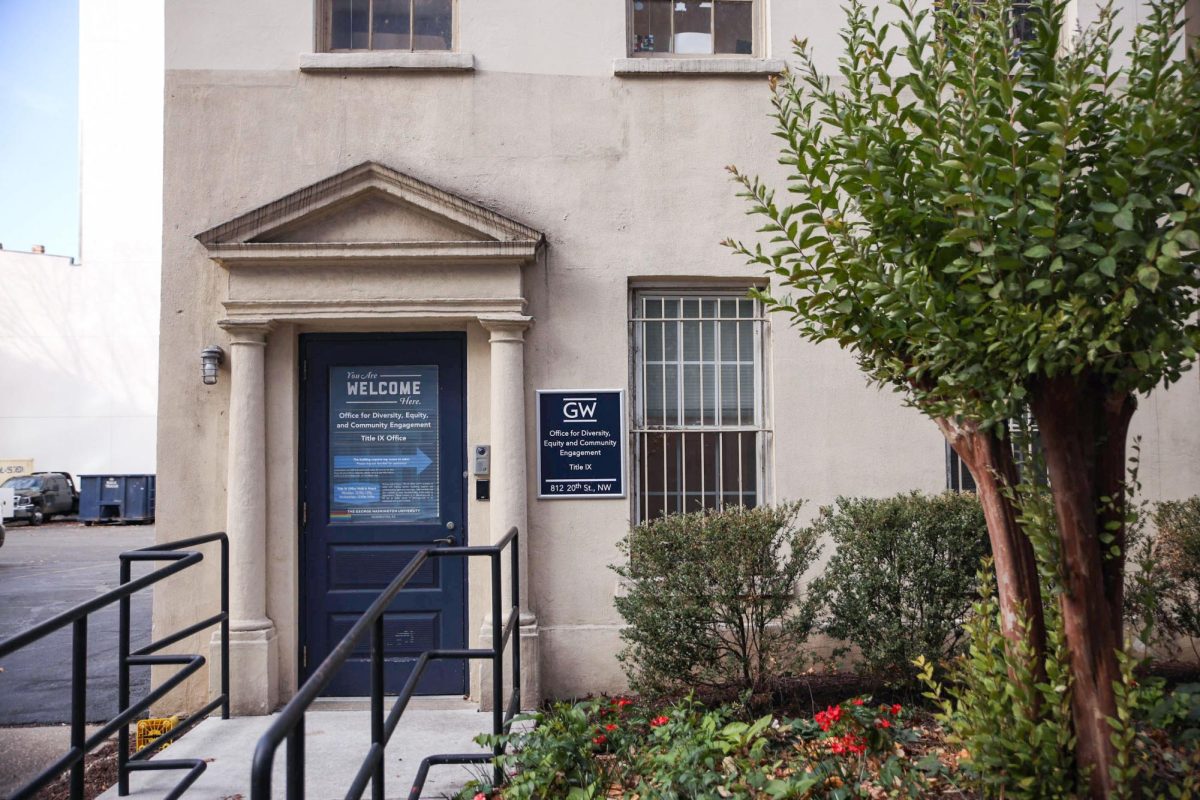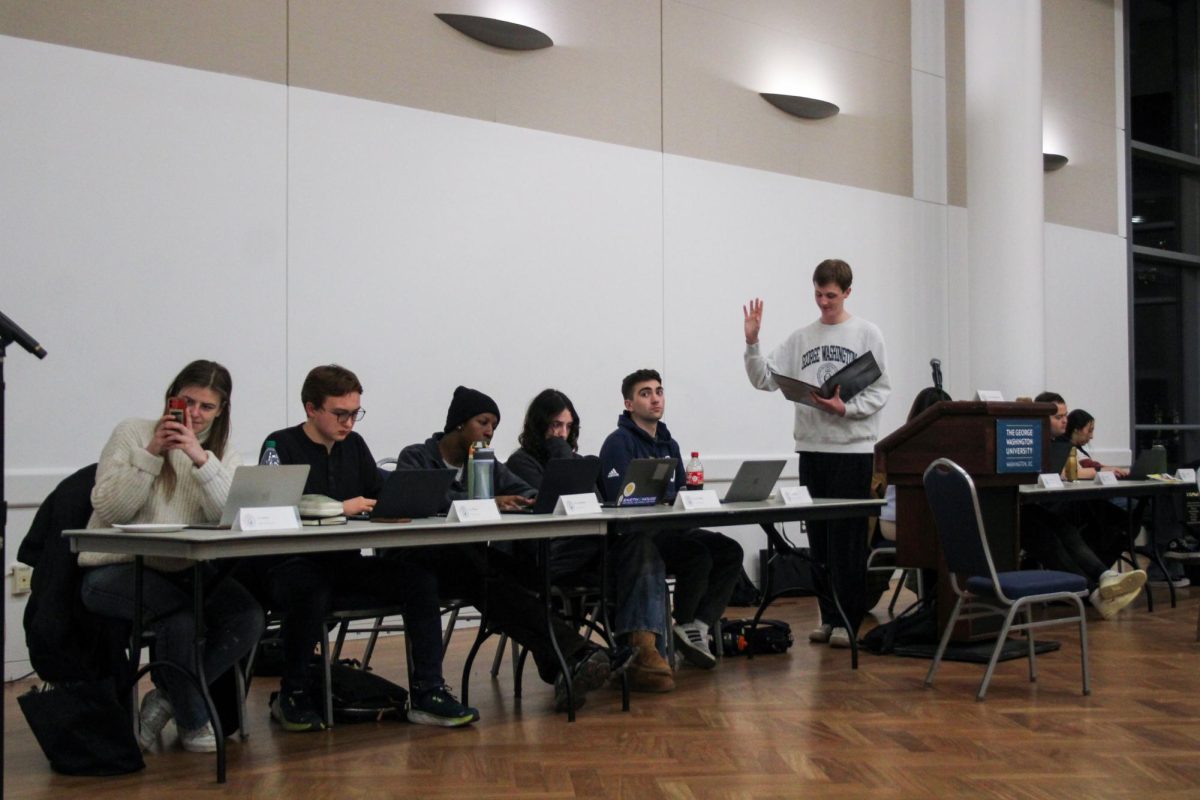The Student Bar Association Senate rejected a resolution calling for officials to resume in-person learning at its meeting Tuesday, a day before the University confirmed its plans to return to in-person classes next week.
In an 8-13 roll-call vote, the senate voted against the Virtual and In-Person Learning Joint Resolution, which would have urged officials to reinstate in-person learning when it is physically safe to do so and acknowledge the mental health struggles of students when taking online classes. Senators who voted in opposition said health concerns tied to the pandemic and a lack of feedback from students about the future of remote learning should stall the return to in-person operations.
GW Law and the rest of the University held classes remotely during the first week of the spring semester amid a surge in COVID-19 cases spurred by the spreading Omicron variant. Officials recorded 748 total positive COVID-19 cases in the past week through Tuesday, with an 8.2 percent positivity rate from Jan. 4 to Jan. 11, according to GW’s COVID-19 dashboard.
SBA Sen. Nicole Karem, a second-year law student who sponsored the resolution, said it was meant to target mental health concerns that students face while taking classes online more than “forcing” the University to switch back to in-person classes. She said the resolution would not “sacrifice” students’ physical health because it requests the University to return to in-person operations only when it is safe to do so.
“We do not want the administration to feel like we are demanding to return before it is safe, but we do not want the decision to be delayed after the health risk is no longer a viable one,” Karem said at the meeting.
Helen Jasper, the SBA’s director of disability, said she was opposed to the resolution because a return to in-person learning would spark a surge in COVID-19 cases and staffing issues at GW. She said an immediate return to in-person operations or classes would reflect a disregard for students with disabilities because they may be more susceptible to severe illness from infection with the coronavirus.
“I think emphasizing a ‘return to campus’ now before a clear end to Omicron is in sight, all this body is doing in supporting the resolution, and specifically that phrase in the resolution, would be expressing a disregard for the health and safety of our fellow students and teachers,” Jasper said. “Particularly those who, for whatever reason, be it age, pregnancy, disability status and so on, are more vulnerable to the virus.”
Senators also passed an amended version of the Spring 2022 Community Town Hall Act, which SBA President Jordan Michel vetoed after it passed during the last senate meeting. SBA Sen. Rurik Asher Baumrin, a third-year law student, proposed revisions in three clauses, which the senate approved – like removing the word “unilaterally” in reference to University decisions made without student support – to address Michel’s concerns with the bill.
Michel will now have the option to sign or veto the revised bill.
Senators also unanimously voted to schedule eight meetings this semester. The next senate meeting take place Jan. 25.








